
The Apartment is a 1960 American romantic comedy-drama film directed and produced by Billy Wilder from a screenplay he co-wrote with I. A. L. Diamond. It stars Jack Lemmon, Shirley MacLaine, Fred MacMurray, Ray Walston, Jack Kruschen, David Lewis, Willard Waterman, David White, Hope Holiday, and Edie Adams.

Stagecoach is a 1939 American Western film directed by John Ford and starring Claire Trevor and John Wayne. The screenplay by Dudley Nichols is an adaptation of "The Stage to Lordsburg", a 1937 short story by Ernest Haycox. The film follows a group primarily composed of strangers riding on a stagecoach through dangerous Apache territory.
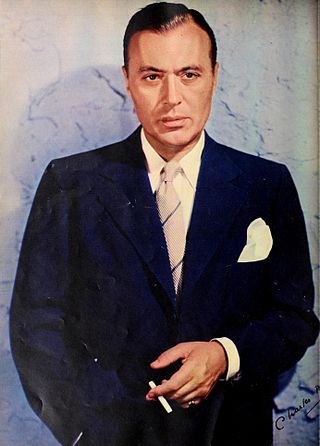
Charles Boyer was a French-American actor who appeared in more than 80 films between 1920 and 1976. After receiving an education in drama, Boyer started on the stage, but he found his success in American films during the 1930s. His memorable performances were among the era's most highly praised, in romantic dramas such as The Garden of Allah (1936), Algiers (1938), and Love Affair (1939), as well as the mystery-thriller Gaslight (1944). He received four Oscar nominations for Best Actor. He also appeared as himself on the CBS sitcom I Love Lucy.
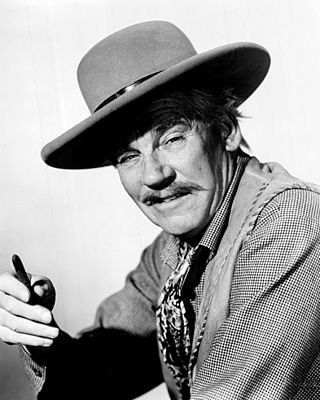
Walter Thomas Huston was a Canadian actor and singer. Huston won the Academy Award for Best Supporting Actor for his role in The Treasure of the Sierra Madre, directed by his son John Huston. He is the patriarch of the four generations of the Huston acting family, including his son John, grandchildren Anjelica Huston and Danny Huston, as well as great-grandchild Jack Huston. The family has produced three generations of Academy Award winners: Walter, his son John, and granddaughter Anjelica.

Susan Hayward was an American actress best known for her film portrayals of women that were based on true stories.
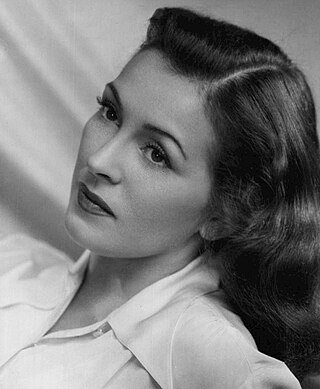
Nancy Kelly was an American actress in film, theater, and television. A child actress and model, she was a repertory cast member of CBS Radio's The March of Time, and appeared in several films in the late 1920s. She became a leading lady upon returning to the screen in the late 1930s, while still in her teens, and made two dozen movies between 1938 and 1946, including portraying Tyrone Power's love interest in the classic Jesse James (1939), which also featured Henry Fonda, and playing opposite Spencer Tracy in Stanley and Livingstone, later that same year. After turning to the stage in the late 1940s, she had her greatest success in a character role, the distraught mother in The Bad Seed, receiving a Tony Award for Best Actress in a Play for the 1955 stage production and an Academy Award nomination as Best Actress for the 1956 film adaptation, her last film role. Kelly then worked regularly in television until 1963, then took over the role of Martha in the original Broadway production of Who's Afraid of Virginia Woolf? for several months. She returned to television for a handful of appearances in the mid-1970s.

Walter Andrew Brennan was an American actor and singer. He won the Academy Award for Best Supporting Actor for Come and Get It (1936), Kentucky (1938) and The Westerner (1940), making him one of only six actors to win three Academy Awards, and the only male or female actor to win three awards in the supporting actor category. Brennan was also nominated for his performance in Sergeant York (1941). Other noteworthy performances were in To Have and Have Not (1944), My Darling Clementine (1946), Red River (1948) and Rio Bravo (1959). On television, he starred in the sitcom The Real McCoys (1957-1963).

Joan Geraldine Bennett was an American stage, film, and television actress, one of three acting sisters from a show-business family. Beginning her career on the stage, Bennett appeared in more than 70 films from the era of silent films, well into the sound era. She is best remembered for her film noir femme fatale roles in director Fritz Lang's films—including Man Hunt (1941), The Woman in the Window (1944), and Scarlet Street (1945)—and for her television role as matriarch Elizabeth Collins Stoddard in the gothic 1960s soap opera Dark Shadows, for which she received an Emmy nomination in 1968.

Charles John "Tim" Holt III was an American actor. He was a popular Western star during the 1940s and early 1950s, appearing in forty-six B westerns released by RKO Pictures.

Walter Wanger was an American film producer active from the 1910s, his career concluding with the turbulent production of Cleopatra, his last film, in 1963. He began at Paramount Pictures in the 1920s and eventually worked at virtually every major studio as either a contract producer or an independent. He also served as President of the Academy of Motion Picture Arts and Sciences from 1939 to October 1941 and from December 1941 to 1945. Strongly influenced by European films, Wanger developed a reputation as an intellectual and a socially conscious movie executive who produced provocative message movies and glittering romantic melodramas. He achieved notoriety when, in 1951, he shot and wounded the agent of his wife, Joan Bennett, because he suspected they were having an affair. He was convicted of the crime and served a four-month sentence, then returned to making movies.
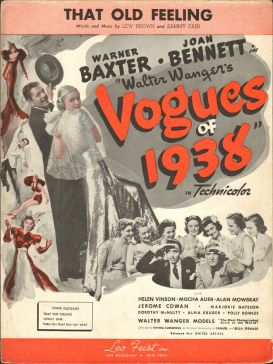
"That Old Feeling" is a popular song about nostalgia written by Sammy Fain, with lyrics by Lew Brown. It was published in 1937.
The 21st Academy Awards were held on March 24, 1949, honoring the films of 1948. The ceremony was moved from the Shrine Auditorium to the Academy's own theater, primarily because the major Hollywood studios had withdrawn their financial support in order to address rumors that they had been trying to influence voters. This year marked the first time a non-Hollywood production won Best Picture, and the first time an individual (Olivier) directed himself in an Oscar-winning performance.
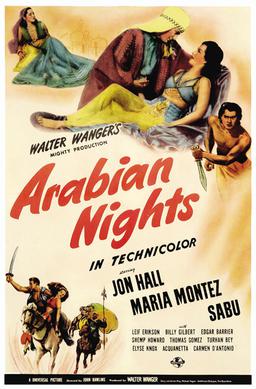
Arabian Nights is a 1942 adventure film directed by John Rawlins and starring Jon Hall, Maria Montez, Sabu and Leif Erikson. The film is derived from The Book of One Thousand and One Nights but owes more to the imagination of Universal Pictures than the original Arabian stories. Unlike The Thief of Bagdad (1940) and other films in the genre, it features no monsters or supernatural elements.

The House Across the Bay is a 1940 film directed by Archie Mayo, starring George Raft and Joan Bennett, produced by Walter Wanger, written by Myles Connolly and Kathryn Scola, and released by United Artists. The supporting cast features Lloyd Nolan, Walter Pidgeon and Gladys George.

She Couldn't Take It is a 1935 American screwball comedy film made at Columbia Pictures, directed by Tay Garnett, written by C. Graham Baker, Gene Towne and Oliver H.P. Garrett, and starring George Raft and Joan Bennett. It was one of the few comedies Raft made in his career.

Navy Wife is a 1956 American comedy film directed by Edward Bernds, and starring Joan Bennett, Gary Merrill, Shirley Yamaguchi. The screenplay was written by Kay Lenard, based on the novel Mother Sir by Tats Blain. The film was produced by Walter Wanger, who was Bennett's husband in real life.
Jennings Lang was an American film producer, screenwriter, and actor.
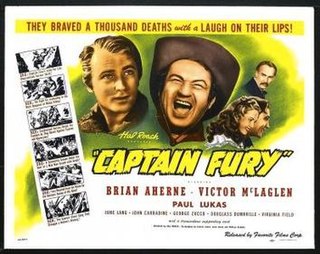
Captain Fury is a 1939 American Western film directed by Hal Roach. It is set in colonial Australia as one of Hollywood's few attempts to depict Australian history.

Catherine Virginia Verrill was a singer in the era of old-time radio and big bands. Her work included providing the off-screen singing voices for some female film stars.

Andrew Peter Solt was a Hungarian-born Hollywood screenwriter for film and television. Born as Endre Peter Strausz, he began his career as a playwright in Budapest. Solt is best known for writing the screenplay for In a Lonely Place (1950), a critically acclaimed film noir directed by Nicholas Ray and starring Humphrey Bogart and Gloria Grahame. The film is on the Time magazine "All-Time 100 Movies" list of greatest films since 1923. In 2007, it was selected for preservation by the National Film Registry of the Library of Congress for being "culturally, historically, or aesthetically significant."


















